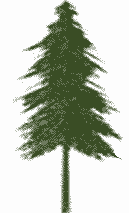Translate this page:
Summary
Physical Characteristics

 Lithocarpus glaber is an evergreen Tree growing to 7 m (23ft).
Lithocarpus glaber is an evergreen Tree growing to 7 m (23ft).
See above for USDA hardiness. It is hardy to UK zone 7. The species is monoecious (individual flowers are either male or female, but both sexes can be found on the same plant).
Suitable for: light (sandy), medium (loamy) and heavy (clay) soils. Suitable pH: mildly acid, neutral and basic (mildly alkaline) soils. It can grow in semi-shade (light woodland) or no shade. It prefers moist soil.
UK Hardiness Map
US Hardiness Map
Synonyms
Pasania glabra. (Thunb.)Oerst. Quercus glabra. Thunb.
Plant Habitats
Woodland Garden Canopy; Secondary;
Edible Uses
Edible Parts: Seed
Edible Uses:
Seed - cooked[177]. The seed probably contains bitter-tasting tannins. These can be removed by soaking the seed in water for a few days, changing the soak water regularly. The process can be speeded up by grinding the seed into a powder prior to soaking[K].
References More on Edible Uses
Medicinal Uses
Plants For A Future can not take any responsibility for any adverse effects from the use of plants. Always seek advice from a professional before using a plant medicinally.
None known
References More on Medicinal Uses
The Bookshop: Edible Plant Books
Our Latest books on Perennial Plants For Food Forests and Permaculture Gardens in paperback or digital formats.

Edible Tropical Plants
Food Forest Plants for Hotter Conditions: 250+ Plants For Tropical Food Forests & Permaculture Gardens.
More

Edible Temperate Plants
Plants for Your Food Forest: 500 Plants for Temperate Food Forests & Permaculture Gardens.
More

More Books
PFAF have eight books available in paperback and digital formats. Browse the shop for more information.
Shop Now
Other Uses
References More on Other Uses
Cultivation details
Prefers a deep fertile soil with medium drainage[200]. Plants are often confused with L. edulis[11]. The botanical name of this species is confusing - glaber means smooth but the young shoots of this species are hairy whilst the young shoots of L. edulis are smooth[11].
References Carbon Farming Information and Carbon Sequestration Information
Temperature Converter
Type a value in the Celsius field to convert the value to Fahrenheit:
Fahrenheit:
The PFAF Bookshop
Plants For A Future have a number of books available in paperback and digital form. Book titles include Edible Plants, Edible Perennials, Edible Trees,Edible Shrubs, Woodland Gardening, and Temperate Food Forest Plants. Our new book is Food Forest Plants For Hotter Conditions (Tropical and Sub-Tropical).
Shop Now
Plant Propagation
The seed is best sown as soon as it is ripe in the autumn in a cold frame[200]. It needs to be protected from mice, squirrels and other seed eaters. The seed has a short viability but can be stored for a few months if kept cool and slightly damp - the salad compartment of a fridge is a good storage place. Germination takes place in the winter or early spring. When they are large enough to handle, prick the seedlings out into individual pots. If the plants are 15cm or more tall by the summer they can be planted out into their permanent positions. Give them a good weed-excluding mulch and some protection from the cold for their first couple of years outdoors. If growth is not sufficient then grow them on in the greenhouse for their first winter and plant them out into their permanent positions in late spring or early summer, after the last expected frosts.
Other Names
If available other names are mentioned here
Native Range
TEMPERATE ASIA: China (Anhui Sheng, Fujian Sheng, Guangdong Sheng, Guangxi Zhuangzu Zizhiqu, Guizhou Sheng, Henan Sheng, Hubei Sheng, Hunan Sheng, Jiangsu Sheng, Jiangxi Sheng, Zhejiang Sheng), Japan (Honshu, Kyushu, Ryukyu Islands, Shikoku), Taiwan
Weed Potential
Right plant wrong place. We are currently updating this section.
Please note that a plant may be invasive in one area but may not in your area so it's worth checking.
Conservation Status
IUCN Red List of Threatened Plants Status :

Growth: S = slow M = medium F = fast. Soil: L = light (sandy) M = medium H = heavy (clay). pH: A = acid N = neutral B = basic (alkaline). Shade: F = full shade S = semi-shade N = no shade. Moisture: D = dry M = Moist We = wet Wa = water.
Now available:
Food Forest Plants for Mediterranean Conditions
350+ Perennial Plants For Mediterranean and Drier Food Forests and Permaculture Gardens.
[Paperback and eBook]
This is the third in Plants For A Future's series of plant guides for food forests tailored to
specific climate zones. Following volumes on temperate and tropical ecosystems, this book focuses
on species suited to Mediterranean conditions—regions with hot, dry summers and cool, wet winters,
often facing the added challenge of climate change.
Read More
Expert comment
Author
(Thunb.)Nakai.
Botanical References
1158200
Links / References
For a list of references used on this page please go here
Readers comment
| Add a comment |
|
If you have important information about this plant that may help other users please add a comment or link below. Only comments or links that are felt to be directly relevant to a plant will be included. If you think a comment/link or information contained on this page is inaccurate or misleading we would welcome your feedback at [email protected]. If you have questions about a plant please use the Forum on this website as we do not have the resources to answer questions ourselves.
* Please note: the comments by website users are not necessarily those held by PFAF and may give misleading or inaccurate information.
To leave a comment please Register or login here All comments need to be approved so will not appear immediately.
|
Subject : Lithocarpus glaber
|
|
|
|